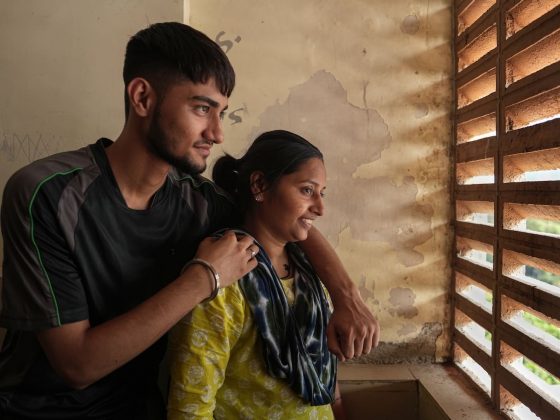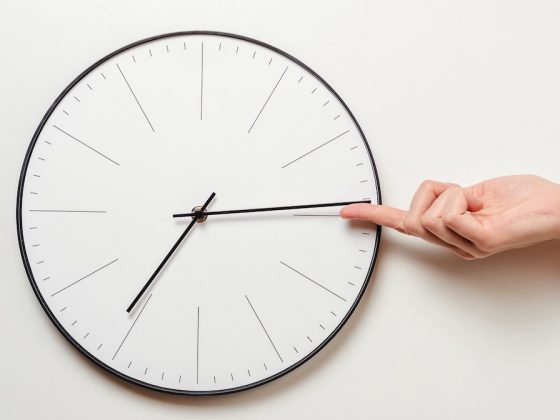Head-to-head comparisons of the effectiveness of radiotherapy and surgery are not often – or easily – performed. Yet, for some types and stages of cancer, there is an increasingly apparent need for hard evidence about their comparative risks and benefits – so that treatment choices can be driven by data rather than convenience and clinical circumstance.
Sadly, the latter often seems to be the case. A national audit in the UK remarkably found that patients with early-stage oesophageal cancer have an 80% chance of receiving radiotherapy if they live in one part of the country, and an 80% chance of having surgery if they live in another. Another recent study of 78 hospitals indicated that choice of surgery or radiotherapy for prostate cancer patients was largely driven by which treatment was most easily accessible from home.
How can such disparities arise? One reason is that, even in areas where head-to-head evidence does exist, there is still sufficient ‘equipoise’ between the two treatments for more random factors such as convenience and custom to be the driving force in choices. Another may be that the rigorous, fair and anti-biased comparisons of risks and benefits needed have never been successfully performed.
“We have a number of cancers for which the surgeons say ‘operate’, and the radiation oncologists say ‘we know that the evidence suggests that you should have radiotherapy,’” says Ajay Aggarwal, a consultant clinical oncologist and Professor of Cancer Services and Systems Research at the London School of Hygiene and Tropical Medicine. “These are debates which go back and forward, sometimes in corridors, sometimes with patients, sometimes within MDTs. So you get disparities, and one of the reasons for this is the lack of robust evidence comparing the two treatments head to head.”
“You get disparities, and one of the reasons is the lack of robust evidence comparing the two treatments head to head”
The reason for this is that the current gold standard for comparative effectiveness research is the randomised controlled trial (RCT). Without the pharmaceutical company funding which drug trials benefit from, RCTs comparing surgery and radiotherapy are time-consuming and costly to organise. Perhaps even more importantly, recruitment to both arms can be difficult, given entrenched beliefs within the clinical community about the ‘best’ treatment.
For example, the SPARE bladder cancer RCT, which reported in 2017, was meant to provide important information about whether bladder preserving techniques involving combined chemotherapy and radiotherapy were a legitimate alternative to radical excision. But the authority of its results was severely compromised by the fact that it could only recruit 45 participants within 30 months, and it was terminated early.
Barriers to RCTs
The reasons for difficulties recruiting to such comparative studies are potentially contentious. But according to Ajay Aggarwal, there is a particular problem in those cancers where tumours have traditionally been managed with surgery.
“If you have an established treatment, or belief in a treatment, it’s quite hard for patients to be referred to an alternative where evidence is evolving or, as in radiotherapy, there have been significant improvements in targeting accurately. Generally, in the past, many of these tumours were managed solely with surgery, so what tends to happen is that radiotherapy just becomes an alternative for those who are not fit for surgery, rather than those who are fit for both treatments.”
It’s very difficult to recruit to a trial if people feel that one established treatment is better than the other
“There’s a natural selection process, which determines the way practice evolves. But you never find out which treatments perform better unless you had people with exactly the same fitness, comorbidities and stage of disease. It’s very difficult to recruit to a trial with two arms if people already feel that one established treatment is better than the other, as happened in the SPARE study.”
The attitude of the clinicians involved has a vital role in recruitment. “I think it’s fair to say that some clinicians are less than enthusiastic when it comes to trials comparing what they do day-in day-out with an alternative,” adds Aggarwal. “Organising trials isn’t something that’s necessarily in your job description, and you have to be extremely enthusiastic to recruit.”
Building evidence from big data
But now there may be an alternative to RCTs – a way of authoritatively comparing the risks and benefits of surgery and radiotherapy when RCTs are not feasible or present logistical problems. Ajay Aggarwal is part of a team pioneering a new kind of ‘trial emulation’ methodology – a trial using non-trial data, using existing UK datasets to compare the effectiveness of radiotherapy and surgical treatments for three types of early-stage cancer: non-small cell lung cancer, oesophageal squamous cell carcinoma and muscle-invasive bladder cancer.
The new departure perversely has its origins in the chaos of the Covid-19 pandemic, when the conventions and traditional pathways that can impede innovation were suddenly and forcibly broken down. With surgical capacity reduced, clinicians had to consider variations on normal curative treatments – thus raising questions about the relative effectiveness of these approaches.
This was particularly true in the treatment of early-stage lung, oesophageal and bladder cancer.
“During the pandemic there were people saying: ‘I can’t offer you surgery, we can’t wait three months – have radiotherapy instead,’” says Aggarwal. “So that brought the idea forward. There was clearly enough evidence to say this was a treatment of some substance, so radiotherapy largely continued as a treatment throughout the pandemic. That formed the prelude of saying: there’s a dataset emerging in that area.”
Covid shook up the norms, and in so doing prompted new ways of addressing questions that have troubled those who believe that their discipline or approaches may be undervalued and unfairly tested in real world situations given the status quo.
Radiotherapy largely continued throughout the pandemic. That formed the prelude of saying: there’s a dataset emerging in that area
What emerged in June last year was the ‘Surgery Or RadioTherapy for early-stage cancer’ (SORT) study, carried out by researchers led by Richard Grieve at the London School of Hygiene and Tropical Medicine in London and supported by the UK’s National Institute for Health and Care Research (NIHR). It applies trial emulation, or ‘target trial’, methodologies to large amounts of existing observational data (in this case, drawn from the UK’s National Health Service), as if it came from an RCT, using strict inclusion and exclusion criteria and clear definitions of the treatment regimens under analysis. A formal framework of analytical techniques was designed to systematically reduce the effects of confounders and hidden biases which can afflict observational studies.
“The SORT study,” says Aggarwal, “is looking at three tumour types where we feel that practice is evolving, but where the treatment you receive will vary very much from place to place, and might be dictated not by success or outcome but by what they do in your area and what facilities are available. We can start to answer these questions with national population-level datasets, trying to create methodologically a fair comparison between surgery and radiotherapy.”
“I’m not saying this is always the answer, but in areas where the RCT isn’t going to happen or it’s been funded and didn’t happen, it’s a way of trying to break free from equipoise and ending this variation in care.”
SORT is possibly the first major study to apply such trial emulation methodology in the field of cancer, and it received backing from the NIHR on the basis that, if successful, it might form a template for other investigations comparing two types of cancer treatment. The approach is particularly suited to countries like the UK that have a centralised state health system, with the NHS providing detailed datasets covering 96% of the treated population and including areas such as treatment, dose, duration, regimen and side effects.
“In areas where the RCT isn’t going to happen, it’s a way of trying to break free from equipoise and ending this variation in care”
Can it provide a way forward elsewhere? Certainly, the need for studies which fairly weigh surgery against other treatments is felt across Europe – as are the limitations of RCTs in challenging traditional pathways.
Uninformed decision making
Philip Poortmans, radiation oncologist at Iridium Kanker Netwerk in Antwerp, Belgium, and a former President of the European Society for Radiotherapy and Oncology, says he feels frustrated that, even in areas such as prostate cancer, there is insufficient evidence about the comparative risks and benefits of surgery and radiation therapy – and patients are effectively starved of the information they need to make treatment decisions. Such decisions should revolve as much around risks and side effects as benefits.
“In urology, only a small minority of patients speak to a specialist apart from the urologist, who all-too-often presents the surgical intervention and the expected outcomes in a very favourable way,” he says.
Surgeons themselves acknowledge that their profession’s accustomed ‘gatekeeper’ role, and occasional resistance to comparisons, can make organising head-to-head comparisons with other treatments difficult.
“There’s no doubt that this is the case, especially if a patient is referred to a surgeon because of their expertise,” says Wim Ceelen, surgical oncologist at Ghent University Hospital, Belgium, and a Board member of the European Society of Surgical Oncology. “In such cases, surgeons will be reluctant to randomise patients to another non-surgical treatment – and it can be difficult for the patient to accept too. There can be a major problem in terms of personal preferences, of both the treating physician and the patient.”
“If a patient is referred to a surgeon because of their expertise… there can be a major problem in terms of personal preferences”
Funding systems can also contribute to randomisation difficulties and militate against trials, he says. “If you have a fee-for-service system, surgeons are paid per procedure. And then, of course, it’s difficult for them to accept that patients are randomised in a study where half of them will not get any surgery.”
On the other hand, he points out, in the age of the multidisciplinary team, such problems are considerably less than they used to be. And he emphasises that the actual need for head-to-head trials between surgery and radiotherapy is limited to particular cancers and circumstances where there is already some evidence of equipoise.
“You do a comparative trial if there is real uncertainty about which is the best therapy. That is not the case in my speciality, GI cancers, which are not very radiosensitive and there is no other form of therapy better than surgery at completely removing the cancer and preventing recurrence. If I were a patient with early-stage colon cancer, I would certainly not embark on a trial where you only irradiate and then hope that everything is gone, because I think it’s obvious that surgery is the superior treatment.
“However, in prostate cancer and non-small cell lung cancer, for example, things are different. In prostate cancer there’s a delicate balance – we know that doing a radical prostatectomy has significant effects on quality of life and prostate cancer is much more radiosensitive. Similarly for some lung cancers – there is a really high likelihood of complete eradication.”
Can we trust trial emulations?
Aggarwal is aware that there will be scepticism from some about using observational data in place of trial data. “Obviously the ideal would be an RCT,” he says. “One of the hardest things with using big data is demonstrating that you have done a fair comparison. Have you actually put in the rigour to detect a true difference? And that’s why still some people, journals, won’t accept this type of trial emulation. So what we are doing is partly to test to what degree we can get closer to the truth.”
On the positive side, he points out, the ‘truth’ that such studies can help identify may be far more grounded in the realities of service provision than the tightly controlled conditions of an RCT. “One of the big questions about conventional trials is, do you get adequate numbers of the types of people you actually treat in practice, with their comorbidities, their heart disease, their age? They’re not often represented.”
Such studies may be far more grounded in the realities of service provision than the tightly controlled conditions of an RCT
There was certainly much enthusiasm about such trials using observational data when they were discussed at last year’s European Cancer Organisation Summit. Pragmatic clinical trials were presented as a practicable alternative to RCTs and a vital building block to optimising treatment.
“We believe these trials are very good value for patients first, for clinicians to guide clinical decision making, and payers,” said Denis Lacombe, Director General of the European Organisation for Research and Treatment of Cancer. “Pragmatic trials combine the methodological strengths of RCTs with the inclusiveness of studies that analyse real world data.”
For Ajay Aggarwal, they mean that it is now feasible to explore treatment comparisons in cancer that were previously regarded as no-go areas, cut off by insurmountable practical barriers. What needs to happen next, he says, is for funders to start supporting further research into what trial emulation can offer and what it can’t, engaging methodologists to co-design projects that are clinically relevant in the real world.
“It’s a methodology that’s evolving, and it’s never the magic bullet you want it to be,” he says. “But it’s an opportunity.”












